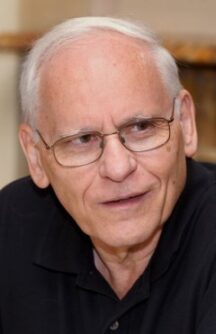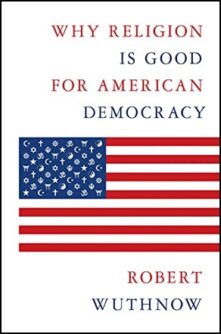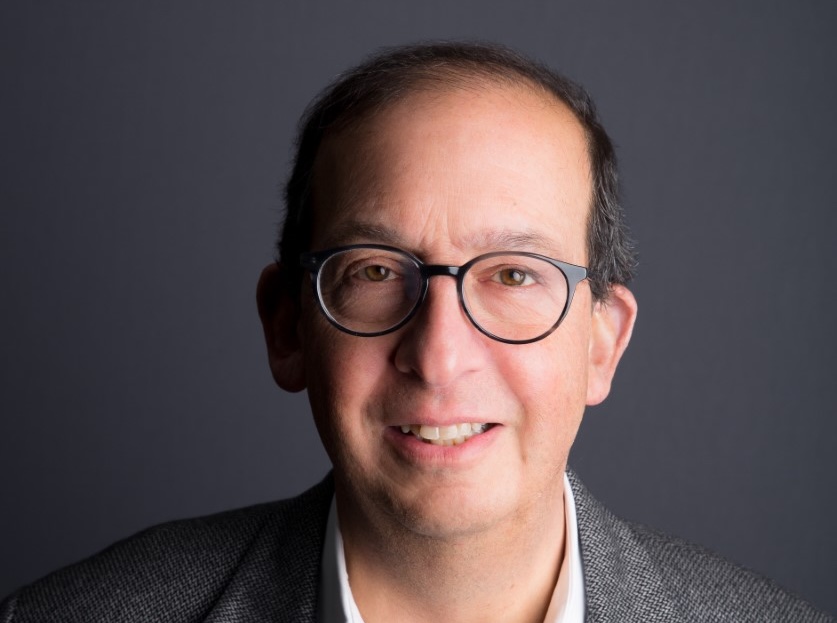More receptivity to and respect for faith at the top of establishment grantmaking in the country might be beneficial, too.
Princeton University professor emeritus Robert Wuthnow, one of the most-prolific social scientists of his generation, has made an impressive career out of being willing to non-dismissively examine the sociology of religion, culture, and civil society in America. Now retired, Wuthnow’s new book, Why Religion Is Good for American Democracy, further demonstrates that willingness—contrary to too many in the academy. When and where notable, Wuthnow places faith-based philanthropy in the context of that which has kept and will keep our democratic polity healthy, too.
His general claim in the book “is that religion is good for American democracy less because of the unifying values it might provide and more because of religion’s capacity to bring diverse, values, interests, and moral claims into juxtaposition with one another,” as explained by Wuthnow, a student of Robert Bellah.
Throughout Why Religion Is Good for American Democracy, Wuthnow offers examples from history of how this unique capacity of religion has been maximized, to great benefit. Some of these examples include the financial enabling or expansion of that capacity by faith-based, -inspired, or -motivated givers.
Diversity more than unity
Wuthnow’s pointed analysis of the benefits of religion arising from the diversity of viewpoints it brings, more so than any unity it can inspire, itself gives rise to further insight-generating analyses—perhaps especially in the context of philanthropy.
There is much, and growing, religious diversity in America, yes, and that is good. There is much faith-based philanthropy and charity in the country, as well, thank God. It yields much benefit. At the top of philanthropy, however, if merely measured numerically (by assets, grants, revenues, pick), there really is not that much diversity, at all.
In fact, while almost “religious” in nature, there is a monocultural unity of aggressively secular, progressive values among American’s establishment institutional and individual grantmakers, and that is bad and to our detriment. Fully realizing the difficulties and challenges of attempting any such categorizations, try naming three traditional, social-conservative, religious people among “America’s Top 50 Givers,” as compiled by Forbes.
Welfare and wealth
One of Wuthnow’s leading examples of religion’s beneficial role in Why Religion is Good for American Democracy is welfare-policy reform in the 1990s and early 2000s. “The debate divided along partisan lines between advocates of private charity and advocates of government programs. Religious groups’ arguments often separated along these lines as well,” according to Wuthnow.
“However, the religious community also contributed a wider variety of perspectives. Black churches, urban ministries, interfaith coalitions, and advocacy groups were often in the best position to work out creative solutions that combined public and private resources,” he continues.
From these welfare debates, Wuthnow then pivots to larger questions, still being asked (and answered), about growing wealth inequality. One strand of this “debate stresses individual freedom, which means limiting the role of government intervention in the economy and looking to private philanthropy for remediation of the wealth gap. Some religious groups have found their voice in advocating for these views,” he writes.

“A different approach has called attention to the social responsibilities of corporations,” he continues. “Drawing on the Rerum Novarum papal encyclical of 1891 and the Social Gospel of early twentieth-century Protestants, some religious groups have advocated for corporate social responsibility.” Others “developed wealth ministries and faith-friendly leadership programs,” and yet others support “community organizing and the living wage movement.
“Through their diverging perspectives,” Wuthnow notes, “they have informed deliberations about public policy, arguing that it should take account not only of economic considerations but also of moral responsibilities.”
Would-be “listed” names
The “industrial wealth that grew from trade, commerce, and the infrastructure that opened the West through canals, shipping, and railroads influenced religion, shaping it even when its popular appeal was to shopkeepers, farmers, and factory workers,” according to Wuthnow.
He cites and briefly describes support for explicitly religious activities from the economically successful J. Pierpoint Morgan, Cornelius Vanderbilt, John Wanamaker, Anthony Drexel, the John D. Rockefellers, Cyrus McCormick’s family, J. Howard Pew, H. L. Hunt, and others. Forbes didn’t compile its list of top 50 givers until decades later, of course, but many of these people would have been on a hypothetical one of their day.
“Although these examples suggest the difficulties religious leaders sometimes had in distancing themselves from the wealthy, it mattered that American religion was as diverse as it was,” Wuthnow writes, before sympathetically exploring at more length the thinking and work of the Social Gospel movement and Catholic social teaching.
Less per se, only tenuous resembling
Why Religion is Good for American Democracy begins its treatment of the more-recent example of “wealth ministries” by defining them as “programs of education and action directed at wealthy individuals themselves and at persons aspiring to be wealthy,” in Wuthnow’s words. “They were ministries aimed to instruct and support the wealthy in relating their wealth to theological frameworks and in directing it toward practices consistent with those frameworks” and “they focused on the rich rather than on the poor and they dealt with the use of money in the private sphere rather than seeking to guide it through government involvement.”
Wuthnow claims “philanthrocapitalism” to be a “wealth ministry,” and thus religious. “Philanthrocapitalism,” to which the book devotes many pages, “is the term given to the idea that the wealthy can be good citizens through their generous involvement in philanthropy and by their application of business methods to their giving in the interest of rendering the results more efficient and effective,” as he explains it.
There’s a tenuousness to claiming “philanthrocapitalism” as religious. Most “philanthrocapitalists” would probably not see or describe themselves that way. “Philanthrocapitalism” certainly did and does not support activities as explicitly religious as those helped by Morgan, Vanderbilt, the Rockefellers, and Pew. One could actually find many “philanthrocapitalists” on Forbes’ newest “America’s Top 50 Givers.”
“Philanthrocapitalism resembles the prosperity gospel in suggesting that wealth is deserved,” Wuthnow writes, however, and its
intellectual origins can be traced to religious teachings in early modern Europe and America about the morality of capitalism. The recent connection with religion lies less in religious organizations and teachings per se than in an expression of exceptional gift giving that, as some scholars have noted, resembles divine beneficence and earns the benefactor the kind of respect that in previous years would have been reserved for the gods.
Yes and amen
Wuthnow’s leading example of godly “philanthrocapitalists”—who defend the wealth gap, he says—is Bill Gates. Wuthnow quotes a Gates’ response to Thomas Piketty’s harsh critique of capitalism and the economic inequality he believes creates it. Gates specifically cites how the wealth generated by capitalism also results in more philanthropy, enough to warrant whatever drawbacks one might see in and from capitalism. “Philanthropy done well not only produces direct benefits for society, it also reduces dynastic wealth,” writes Gates, as quoted by Wuthnow.
Purportedly religious Gates, for one, does not seem to wear that religion on his sleeve, as it’s put—in either that quote in particular or his life in general, for that matter. “Few of the best-known philanthrocapitalists have been noted for their personal involvement in religion,” Wuthnow acknowledges.
Wealthy philanthropy motivated by religion is commonly identified as “traditional,” meaning that money is given to recipients who are vetted in terms of religion or some other mark of worthiness and are then in charge of how the funds are spent rather than becoming involved in business activity that is closely guided by the donor.
Yes. (Or, amen?) Makes sense: religious philanthropy would include, or maybe just be, grantgiving “to recipients who are vetted in terms of religion.”
But Wuthnow maintains that the “line separating traditional philanthropy and philanthrocapitalism, however, is indistinct.” This is unconvincing. He cites a World Vision study showing evangelical donors giving more to projects involving small businesses and a Partners Worldwide project linking American business leaders with entrepreneurs in poor countries.
No stronger evidence? That’s sure not, as it’s put, “your father’s” (nor your Father’s) faith-based philanthropy.
“Philanthrocapitalism shapes the environment in which religion functions in ways that influence how religion relates to society as well,” Wuthnow posits, and “[s]ome evidence suggests that small philanthropic organizations founded by religiously motivated individuals have increasingly adopted philanthrocapitalist business models as well.”
A distinct benefit
The line separating actual traditional religious philanthropy and that practiced by Gates and his small-g godly peers in the country’s reigning philanthropic establishment is, in actuality, quite distinct. Calling the latter’s fashionably philanthrocapitalistic component “religious” doesn’t make that line any less distinct.
Wuthnow may very well be right that religion historically has been good for the diversity that it brings to America’s teeming, e pluribus democracy, in addition to or above and beyond any unifying values it might provide. Let’s hope so. It’s also the case, though, that increased receptivity to and respect for religion as historically understood would bring great benefit to America’s contemporary, ideologically monocultural philanthropic establishment.
(Amen?)



